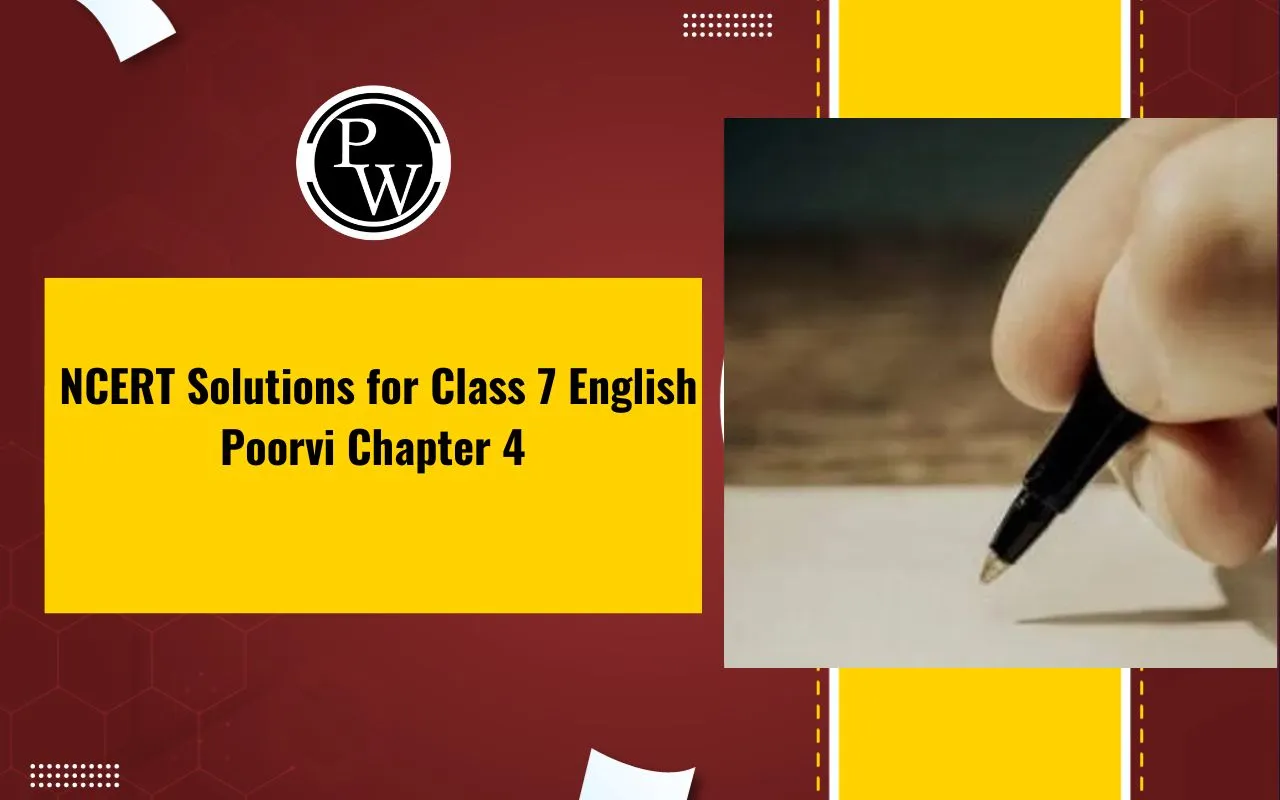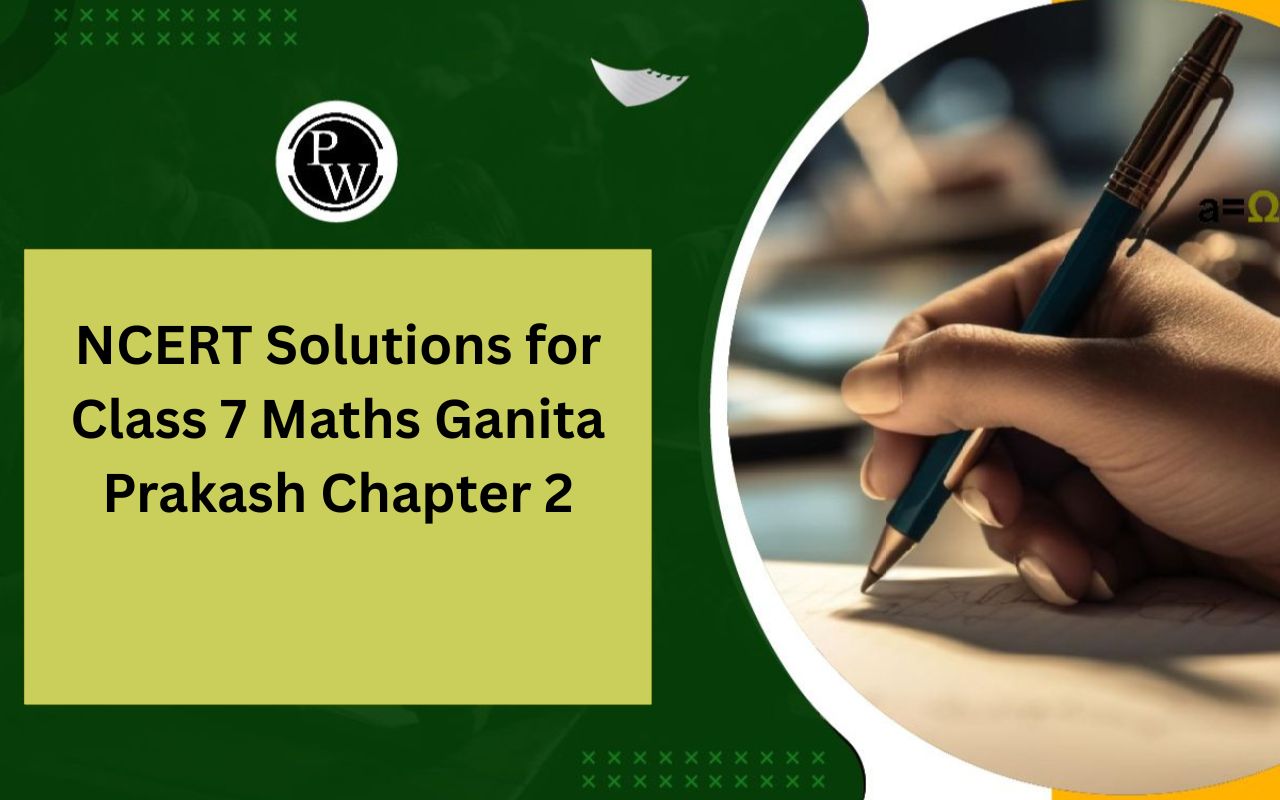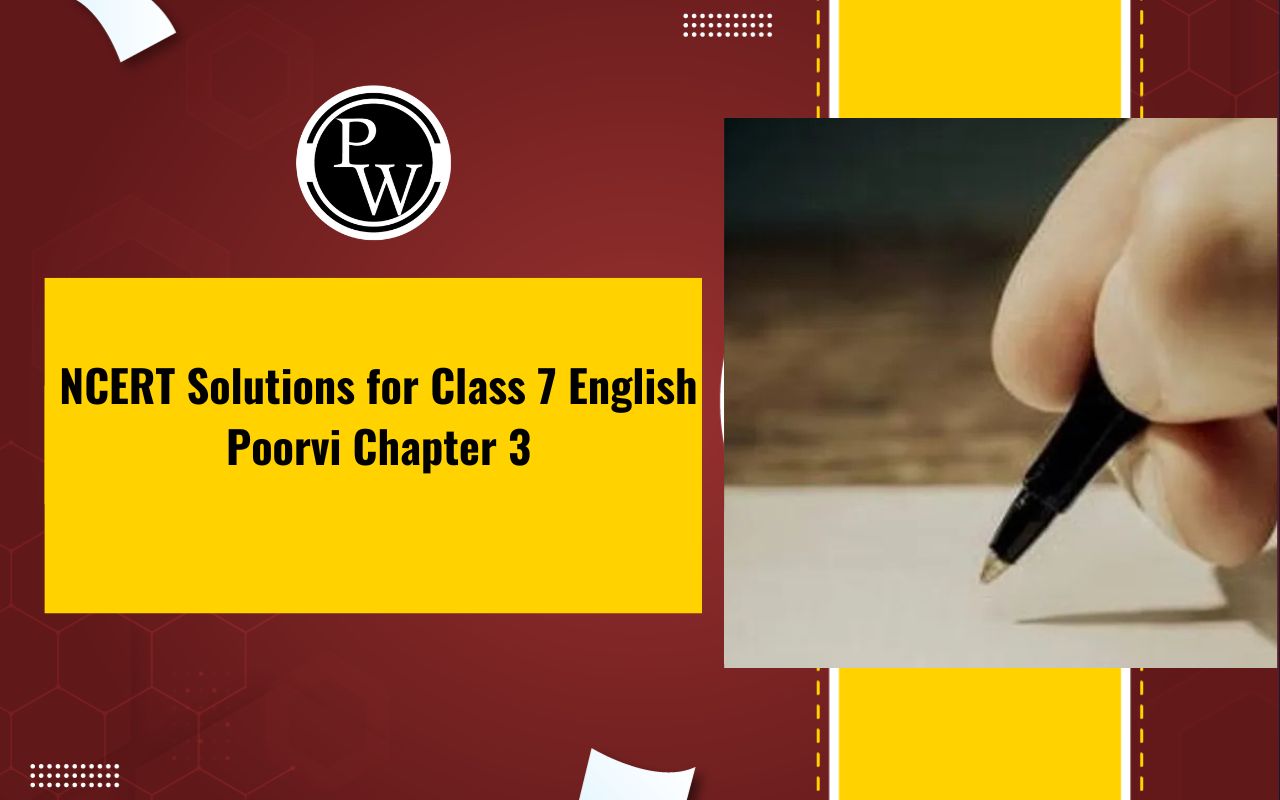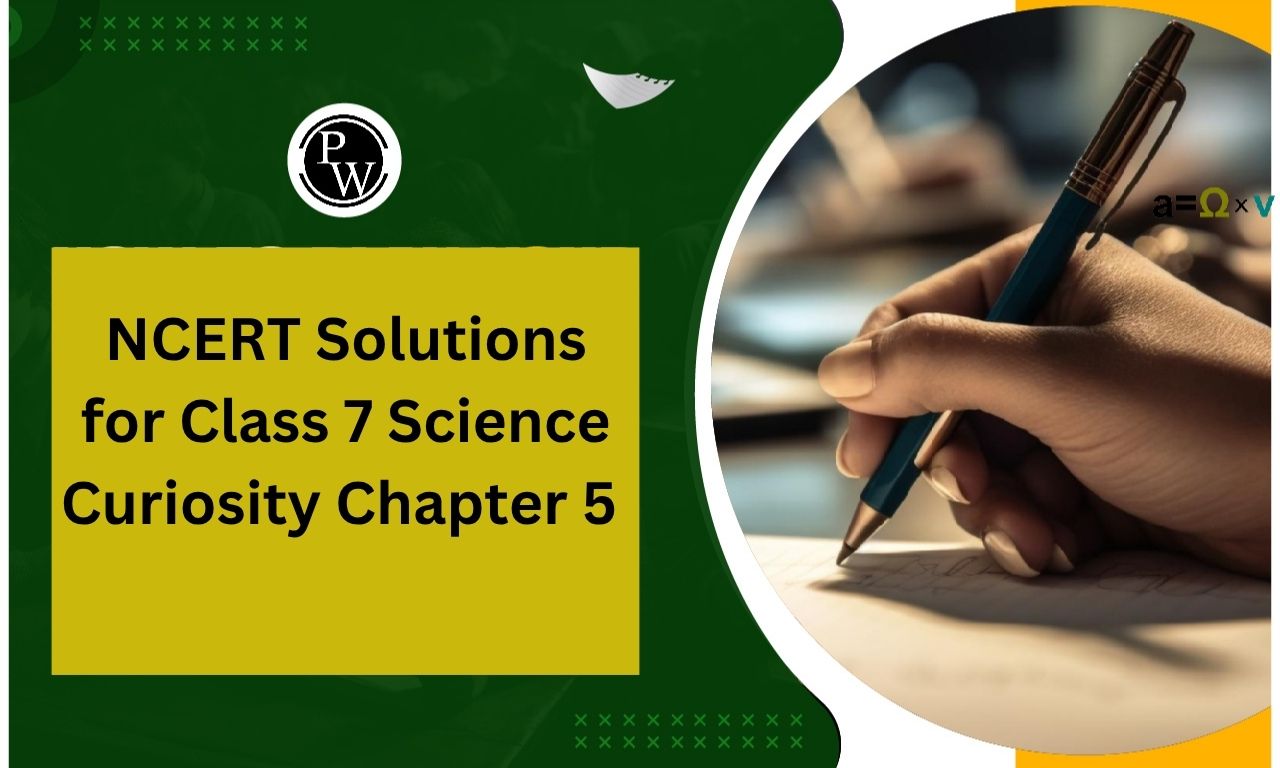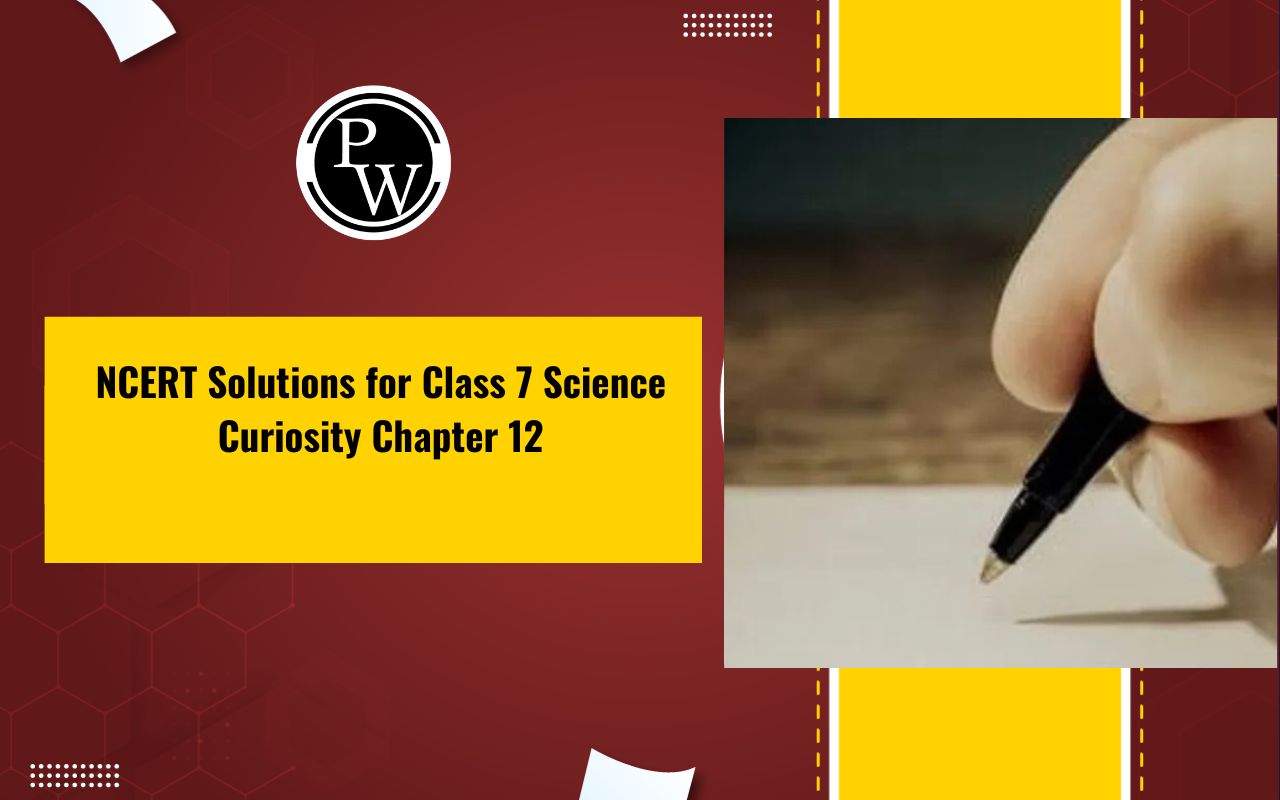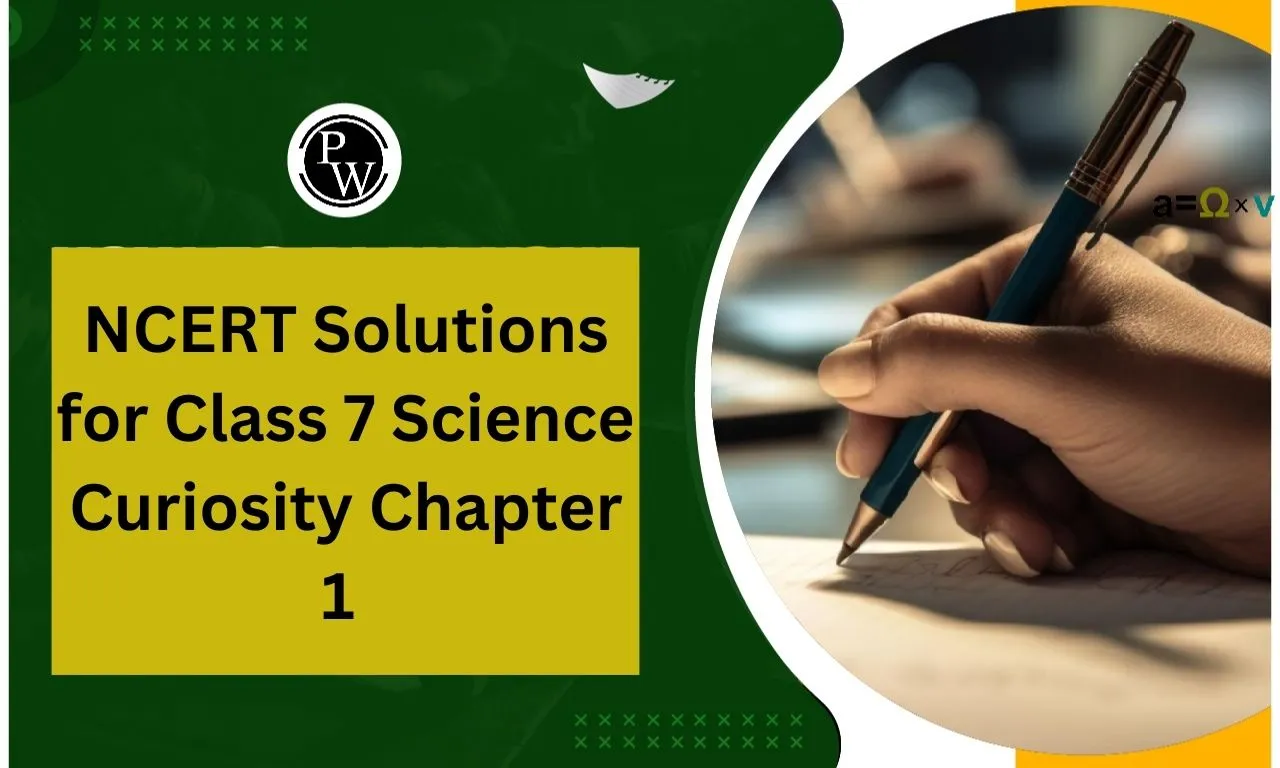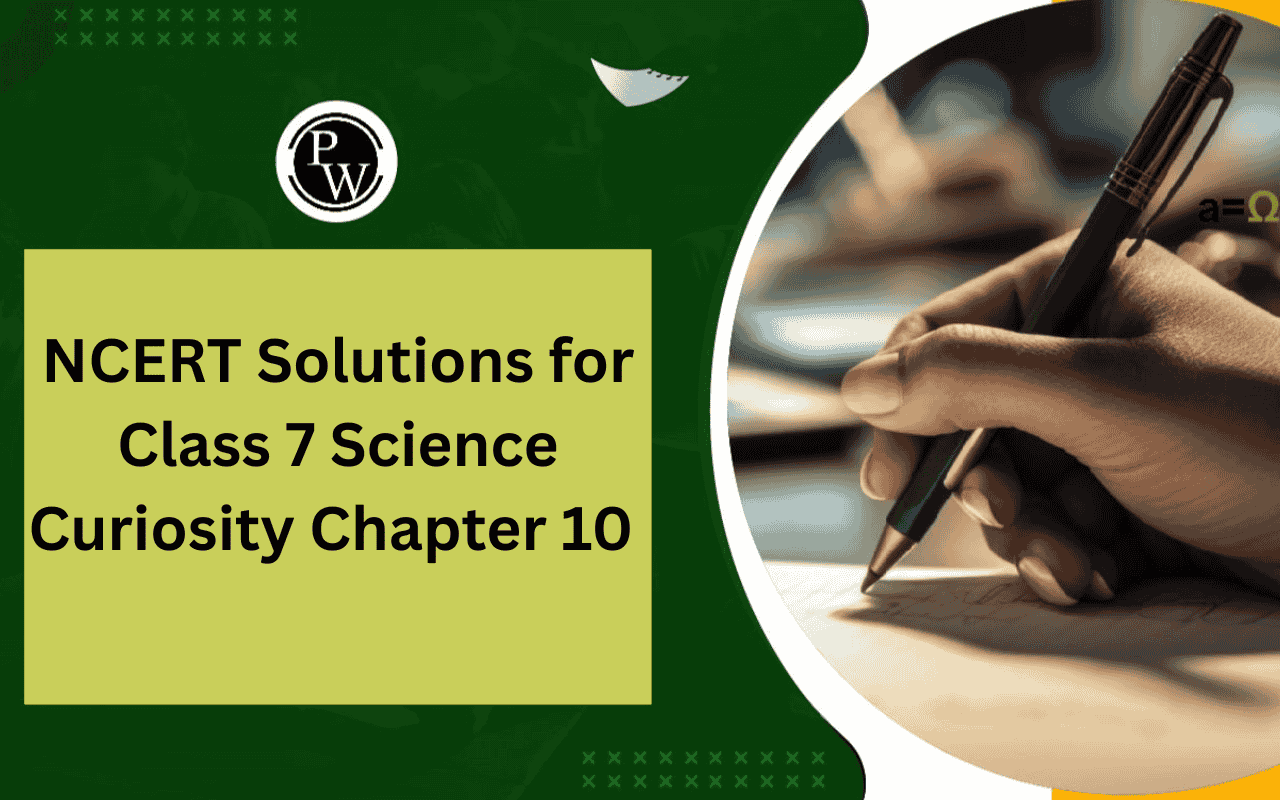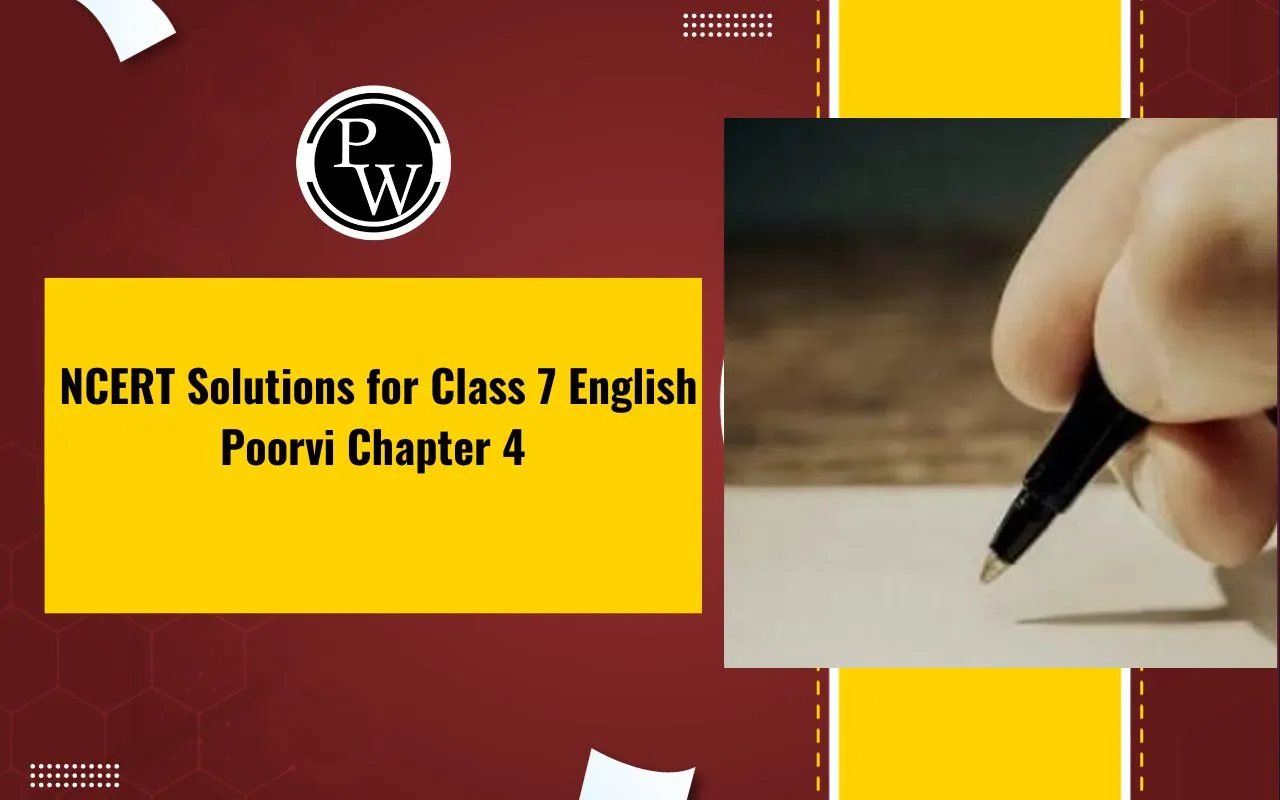
NCERT Solutions for Class 7 English Poorvi Chapter 4 provide comprehensive answers to all the textbook questions, helping students understand the chapter thoroughly. These solutions are prepared as per the latest Class 7 English syllabus.
Class 7 English Chapter 4 helps students improve reading, vocabulary, and writing skills through interesting questions. The answers are easy to understand and are explained step by step. This helps students learn quickly and do well in exams.
Class 7 English Poorvi Chapter 4 Animals, Birds and Dr. Dolittle
Chapter 4 of the Class 7 English Poorvi textbook introduces us to the fascinating world of Dr. Dolittle, a kind and intelligent doctor who could talk to animals. The story shows how Dr. Dolittle learns different animal languages with the help of a parrot named Polynesia.
This heartwarming tale teaches students the importance of kindness, understanding, and treating animals with love and care. Through this chapter, students also learn valuable moral lessons about compassion and respect for all living beings.
Animals, Birds and Dr. Dolittle Class 7 Question Answers
Below are the NCERT Class 7 English Chapter 4 question answer solutions designed to help students understand the chapter thoroughly. With the help of these question-answers, students can revise important concepts and prepare effectively for their English exam
Animals Birds and Dr Dolittle Question Answer – Let us do these activities before we read (Page 43)
I. Do you have a pet or a domestic animal? If yes, why? If not, why not? How do people usually spend time with a pet or domestic animal? Share your thoughts with your classmates and the teacher.
Answer:
Yes, I have a pet dog. I love animals, and having a pet makes me feel happy and less lonely. Pets are fun to play with and they also understand our feelings. People usually spend time with their pets by playing with them, feeding them, taking them for walks, or simply cuddling and talking to them. Pets become like a part of the family.
II. You must have read stories where animals and birds talk. If you had a chance to communicate with an animal or a bird, who would you like to speak to and why? Share your thoughts with your classmates and the teacher.
Answer:
If I had a chance to talk to an animal, I would like to speak to a dog. Dogs are known to be loyal and friendly, and I would love to know what they think when they wag their tail or bark happily. I would ask my pet dog how he feels when I play with him and what food he likes the most. It would be amazing to understand his thoughts and emotions just like we talk to friends.
III. If we closely observe the body language of animals and birds, we can understand what they want to tell us. Work in pairs and study the pictures given below. Find out what emotions these animals and birds are trying to convey. Share your observations with your classmates and the teacher.
Answer:
1. Angry
2. Scared
3. Happy
4. Cool
Animals Birds and Dr Dolittle Class 7 Question Answer – Let us discuss (Page 46)
I. Complete the following sentence by selecting a suitable reason.
The Cat’s-food-Man suggests to Doctor Dolittle that he should become an animal doctor because he believes that Dolittle ________.
1. earns less fee by treating human patients
2. enjoys the company of animals as they speak less
3. dislikes spending time with human patients
4. knows more about animals than the local veterinarians
Answer:
4. knows more about animals than the local veterinarians.
II. Fill in the blanks by choosing the suitable option given in the brackets.
Doctor Dolittle reacts to Polynesia’s information about animal languages with both excitement and ________ (certainty/curiosity). He rushes to ________ (write/ memorise) the bird words she provides and is interested in learning more.
Answer:
Curiosity, write
III. Do you think Doctor Dolittle would be famous as an animal doctor?
If yes, why? If not, why not?
Answer:
Yes, Doctor Dolittle would definitely become a famous animal doctor. He had a deep love and understanding for animals. After learning their language, he could talk to them and know exactly what their problems were. This made his treatment more accurate and caring. Birds and other animals, who travel to different places, would share their experience with others, spreading the news of Doctor Dolittle's kindness and skills all over the world.
Class 7 English Animals Birds and Dr Dolittle Question Answer – Let us discuss (Pages 49-50)
I. What became a common sight in Puddleby after Doctor Dolittle started treating animals?
1. Humans talking to farm animals
2. Farm animals wearing glasses
3. Farm animals learning bird language
4. Birds riding atop farm animals
Answer:
2. Farm animals wearing glasses.
II. What challenges do you think Doctor Dolittle might face if more and more animals come to him for help?
Answer:
Doctor Dolittle might face several challenges if more and more animals come to him for help. He would need to spend a lot of time with each animal to understand their problems. Learning different animal and bird languages could also become difficult and time-consuming. Additionally, he might not have enough space in his clinic to treat all the animals comfortably. Managing such a large number of patients alone could be tiring and stressful for him.
Question 1.
How might he overcome these challenges to ensure that he provides good treatment?
Answer:
Doctor Dolittle can overcome these challenges by training other doctors to understand and speak animal languages, so he doesn't have to treat all the animals alone. He can also build a larger hospital with proper equipment to handle many animals at once. Creating a fixed timetable for different types of animals would help him manage time better and give equal attention to each patient. This way, he can continue to provide good treatment to all animals.
III. Arrange the following events in correct order according to the story. Two have been done for you. Share your answers with your classmates and the teacher.
Answer:
(iv)
(viii)
(i)
(iii)
(vi)
(ii)
(ix)
(vii)
(x)
(v)
Animals Birds and Dr Dolittle Class 7 Questions and Answers – Let us think and reflect (Pages 50-52)
I. Read the extracts given below and answer the questions that follow.
Question 1.
“If I say, ‘Polly wants a cracker’, you understand me. But hear this: Ka-ka oi-ee, fee-fee?”
“Good Gracious!” cried the Doctor. “What does that mean?” “That means, ‘Is the porridge hot yet?’—in bird language.”
“My! You don’t say so!” said the Doctor. “You never talked that way to me before.”
“What would have been the good?” said Polynesia, dusting some cracker crumbs off her left wing. “You wouldn’t have understood me if I had.”
(i) Complete the sentence by choosing the correct option.
In the line, “Good Gracious!” cried the Doctor, the expression ‘Good Gracious’ can be replaced by ________!
A. bravo
B. gosh
C. alas
D. hurray
Answer:
B. gosh
(ii) Why had Polynesia never used bird language with the Doctor earlier?
Answer:
Polynesia had never used bird language with the Doctor earlier because she knew that he wouldn’t understand it. She waited until he was ready and willing to learn the language so that their communication would make sense and be meaningful.
(iii) Identify whether the following statement is true or false.
Polynesia had been munching on a food item while talking to Doctor Dolittle.
Answer:
False
(iv) How did Doctor Dolittle feel accordi: to the extract?
A. anxious
B. surprised
C. angry
D. relaxed
Answer:
B. surprised
Question 2.
“I would like a pair like your: said the horse—“only green. They keep the Sun out of my eyes while I ploughing the field.”
“Certainly,” sa the Doctor. “Green ones you shall have”
“You know, the trouble is, Sir,” said the plough horse as the Doctor opened the front door to let him out—“the trouble is that anybody thinks he can doctor animals—just because the animals don’t complain. As a matter of fact, it takes a much cleverer man to be a really good animal doctor than it does to be a good people’s doctor.”
(i) Choose a word from the extract to complete the analogy.
digging: flower bed:: ______________: field
Answer:
ploughing
(ii) Choose the correct word to complete the sentence.
Doctor Dolittle’s attitude in the extract is ______________.
A. respectful
B. sentimental
C. understanding
D. careful
Answer:
C. understanding
(iii) Complete the sentence with an appropriate reason.
Based on the extract, we can conclude that doctors take animals for granted because ______________.
Answer:
they don’t try to understand the animal’s actual pain as they are unaware of their language.
They give different medicines, few times, which do not cure the animals.
(iv) Do you agree with the concluding sentence of the extract?
Why/why not?
Answer:
Yes, I agree with the concluding sentence that it takes a much cleverer person to be a good animal doctor than a people’s doctor. Animals cannot speak or explain their pain, so a doctor needs special skills, patience, and a deep understanding to treat them. Doctor Dolittle was intelligent, kind, and truly cared for animals, which helped him learn their language and treat them with love and care.
II. Answer the following questions.
Question 1.
How can we say that Polynesia was a good trainer of animal language?
Answer:
Polynesia was a good trainer because she taught Doctor Dolittle the animal languages with patience and care. She explained everything step by step. She even told him that parrots have two languages. One rainy afternoon, she sat with him at the kitchen table and began teaching him the basics, like the A, B, C of bird language. This shows how well she guided him.
Question 2.
Explain how Doctor Dolittle gave equal and individual attention to each animal who came to him for treatment.
Answer:
Doctor Dolittle was kind and thoughtful. He listened carefully to each animal, understood where they were hurt, and gave them proper time and care. He did not rush or ignore anyone. Instead, he treated each animal based on their need, which made them feel better and happy. Every animal went back healthy and satisfied.
Doctor Dolittle listened to Polynesia, his pet parrot, when she advised him to become an animal doctor. She explained that animals needed someone like him who could really understand them. She also told him that other animal doctors weren’t as good. By following her advice and learning animal languages, he became very successful. This shows that listening to others—especially those we trust—can help us make smart decisions.
Question 4.
Which qualities of Doctor Dolittle made him famous among the animals? Explain with evidence from the text.
Answer:
Doctor Dolittle became famous because he was kind, patient, and truly cared about animals. He listened to their problems and understood their pain. He treated each animal with care. For example, when a plough horse said he needed green glasses to block the sunlight, Dolittle gave them to him. Most importantly, he could talk to animals in their own language, which helped him understand and cure them better. These qualities made him loved and respected by all animals.
Question 5.
What changes do you think would happen in the world if people suddenly gained the ability like Doctor Dolittle, to understand and communicate with animals?
Answer:
If people could talk to animals like Doctor Dolittle, the world would become a much better place for them. Animals could explain their pain, and doctors could treat them properly. There would be fewer chances of mistreatment or guesswork. People would care more about animals' feelings, and we could live in better harmony. Animals might even help humans more by working with them as true companions.
Question 6.
Fill in the blanks using the correct form of verbs (present perfect) given within brackets.
Since becoming an animal doctor, Doctor Dolittle 1. _________ (learn) to communicate with all animals and birds. He 2. _________ (treat) countless farm animals and pets with care. The parrot, Polynesia, 3. _________ (teach) him bird-language, and he 4. _________ (write) books about his adventures. Many people 5. _________ (bring) their sick animals to his door. Over the years, Dolittle 6. _________ (become) renowned worldwide for his unique abilities.
Answer:
Since becoming an animal doctor, Doctor Dolittle 1. has learnt (learn) to communicate with all animals and birds. He 2. has treated (treat) countless farm animals and pets with care. The parrot, Polynesia, 3. has taught (teach) him bird- language, and he 4. has written (write) books about his adventures. Many people 5. have brought (bring) their sick animals to his door. Over the years, Dolittle 6. has become (become) renowned worldwide for his unique abilities.
Class 7 English Chapter 4 Question Answer – Let us listen (Page 55)
I. You will listen to an announcement. As you listen, state whether the following statement is true or false. (Transcript for the teacher on NCERT pg. 88)
Dr. Dolittle’s new clinic presents an offer of free medicines.
Answer:
False (It is not mentioned in the transcript).
II. You will listen to the announcement again. As you listen, complete the details given below with one or two exact words you hear.
1. The new clinic is located in the town of ______________.
2. The address is 12, ______________ Lane.
3. The clinic is open Monday to Friday from ______________ a.m. to 5 p.m.
4. Special timings for ______________ are on Saturdays from 11 a.m. to 2 p.m.
5. Dr. Dolittle will ensure that animals get the ______________.
6. All animals—horses, cows, ______________, wild animals, and others are welcome.
Answer:
1. The new clinic is located in the town of Woodstock.
2. The address is 12, Rose Lane.
3. The clinic is open Monday to Friday from 9 a.m. to 5 p.m.
4. Special timings for birds are on Saturdays from 11 a.m. to 2 p.m.
5. Dr. Dolittle will ensure that animals get the best care.
6. All animals—horses, cows, to pets, wild animals, and others are welcome.
NCERT Class 7 English Poorvi Chapter 4 Question Answer – Let us write (Page 57)
A notice is a short and clear message that gives important information to a group of people. It is usually written to announce events, rules, competitions, holidays, or any important updates in schools.
Write a notice in about 50 words about t|je Annual Health Check-up for students of Grades 6-8. Remind students to collect tneir health check-up cards from the class teacher. Include all other necessary details about date, time, and venue.
Complete the draft of the notice by using the words and phrases given in the box below.
Answer:
Class 7th English Chapter 4 Day the River Spoke Question Answer – Let us explore (Page 58)
I. The word ‘goshala’ translates to ‘cowshed’ in English. It is a Sanskrit word that is made up of the words ‘go’, which means ‘cow’, and śālā, which means ‘shed’ or ‘hall’. Plan a visit with the teacher to a ‘goshala’ and fid out how the cows are looked after.
II. Ayurveda is the oldest existing medical system in India. Animals received good medicinal care in ancient India. Indian medical treatises like Charaka Samhita, Sushruta Samhita, and Harita Samhita contain references of care of animals. Find out names of different organisations that work for the welfare of animals with the help of the teacher.
III. What is the best way to take care of stray and abandoned animals?
1. Provide food and water for the animal
2. Take them to an animal shelter
3. Adopt them by taking them home
Give reasons for your responses.
Answer:
Provide food and water for the animal: This is the easiest and most immediate help we can give to stray animals. It helps them survive on the streets.
Take them to an animal shelter: This is a good option if the animal is injured, sick, or cannot survive alone. Shelters provide medical help and a safe place to live.
Adopt them by taking them home: This is the best way to give the animal a permanent, loving home. Adoption gives them a family and a life off the streets.
NCERT Solutions for Class 7 English Poorvi Chapter 4 PDF Download
Students can download the PDF of NCERT Solutions for Class 7 English Poorvi Chapter 4 from the link given below. They help students understand the chapter easily and improve their performance. The solutions follow the latest syllabus and exam pattern. Students can use them for quick revision before exams.
NCERT Solutions for Class 7 English Poorvi Chapter 4
Study without using the internet
Benefits of Using NCERT Solutions for Class 7 English Poorvi Chapter 4
Here are the Benefits of Using NCERT Solutions for Class 7 English Poorvi Chapter 4:
-
The chapter is explained in a simple and clear manner to help students understand it easily.
-
Step-by-step answers help students learn how to write properly in exams.
-
Students learn new words and their meanings, which improves their language skills.
-
These solutions are useful for daily study, completing homework, and quick revision.
-
Solutions follow the latest NCERT syllabus, helping students prepare well for exams.
-
With regular practice, students feel more confident in English subject.
NCERT Solutions for Class 7 English Poorvi Chapter 4 FAQs
What do NCERT Solutions for Class 7 English Poorvi Chapter 4 offer?
Are NCERT Solutions for Class 7 English Poorvi Chapter 4 based on the latest syllabus?
How do NCERT Solutions for Class 7 English Poorvi Chapter 4 help in homework?
Are these solutions available in PDF format for offline use?

